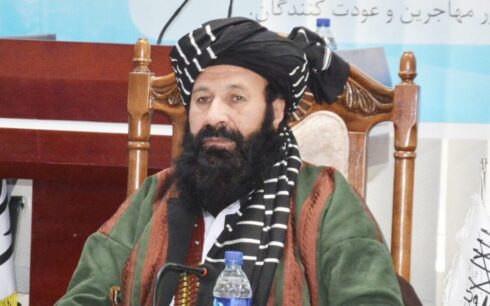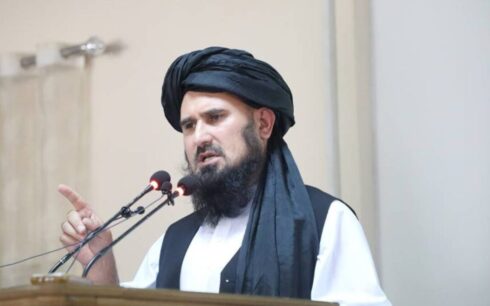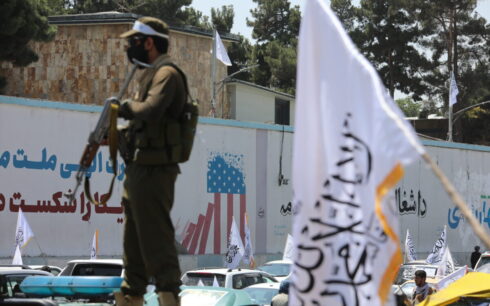China and Iran have called on Afghanistan to end restrictions on women’s work and education, adding that the US and its NATO allies “should be responsible for the current situation in Afghanistan.”
The call came in a joint statement issued Thursday at the close of a visit to Beijing by Iranian President Ebrahim Raisi. During the visit, the two sides affirmed close economic and political ties and jointly rejected Western standards of human rights and democracy.
Since taking over Afghanistan in August 2021, the Taliban has banned women and girls from high school and university and banned women from working for NGOs.
According to the statement, the two sides “called on the Afghan rulers to form an inclusive government in which all ethnic groups and political groups actually participate, and cancel all discriminatory measures against women, ethnic minorities and other religions.”
The statement also noted that the US and its NATO allies “should be responsible for the current situation in Afghanistan.”
The isolation of Afghanistan since the Taliban captured the country’s capital in August 2021 has provided China an opportunity to become a major player in the country. But it has taken a back seat when it comes to criticizing the Taliban in anyway.
Beijing has joined the international community in urging Kabul’s new rulers to implement reforms, such as forming an inclusive government with representation for all Afghan ethnicities and respect for women’s rights, particularly when it comes to education and work.
Before the collapse of the Ashraf Ghani-led government, Beijing had a close working relationship with Kabul, and Afghan security forces helped monitor and target Uyghur militant groups at China’s request. But since the Taliban’s takeover in August last year, Beijing has begun to engage with the new rulers because it does not want terrorism to spill over from Afghanistan into China or target its interests in the region.
In addition, the call for women’s rights is notable coming from Iran, which has been challenged by months of protests sparked by the death of a young woman in police custody for allegedly violating the dress code.
The China-Iran joint statement also emphasized strong political and economic ties, the quest for peace and justice in the Middle East and denuclearization in spite of Tehran’s alleged drive to produce atomic weapons.
In a meeting earlier with Chinese leader Xi Jinping, Raisi expressed support for China’s crackdown on democracy in Hong Kong and claim to self-ruling democratic Taiwan.
China and Iran portray themselves, alongside Moscow, as counterweights to American power, and have given tacit, and in Iran’s case, material support to Russia’s invasion of Ukraine.
“China supports Iran in safeguarding national sovereignty” and “resisting unilateralism and bullying,” Xi said in a statement carried by Chinese state TV on its website.





